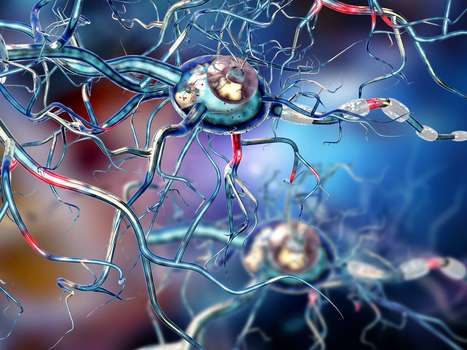Huntington’s disease (HD) is a fatal, dominantly inherited neurodegenerative disorder caused by CAG trinucleotide expansion in exon 1 of the huntingtin (HTT) gene. Since the reduction of pathogenic mutant HTT messenger RNA is therapeutic, we developed a mutant allele-sensitive CAGEX RNA-targeting CRISPR–Cas13d system (Cas13d–CAGEX) that eliminates toxic CAGEX RNA in fibroblasts derived from patients with HD and induced pluripotent stem cell-derived neurons. We show that intrastriatal delivery of Cas13d–CAGEX via an adeno-associated viral vector selectively reduces mutant HTT mRNA and protein levels in the striatum of heterozygous zQ175 mice, a model of HD. This also led to improved motor coordination, attenuated striatal atrophy and reduction of mutant HTT protein aggregates. These phenotypic improvements lasted for at least eight months without adverse effects and with minimal off-target transcriptomic effects. Taken together, we demonstrate proof of principle of an RNA-targeting CRISPR–Cas13d system as a therapeutic approach for HD, a strategy with implications for the treatment of other dominantly inherited disorders. Leveraging RNA-targeting CRISPR–Cas13d technology, Morelli et al. engineered a novel therapeutic strategy that safely and effectively eliminates toxic expanded huntingtin RNA in multiple models of Huntington’s disease.
Research and publish the best content.
Get Started for FREE
Sign up with Facebook Sign up with X
I don't have a Facebook or a X account
Already have an account: Login
 Your new post is loading... Your new post is loading...
 Your new post is loading... Your new post is loading...
|
|














Huntington's disease (HD) is a neurological disorder that causes progressive loss of movement, coordination and cognitive function. It is caused by a mutation in a single gene called huntingtin or HTT. In a new study, published Dec. 12, 2022, in Nature Neuroscience, researchers describe the use of CRISPR/Cas13d RNA-targeting technology to develop a new therapeutic strategy that specifically removes the toxic RNA that causes HD. They used viral vehicles to deliver the therapy to neuronal cultures, which were developed from stem cells derived from patients with HD, and found that the approach not only targeted and destroyed mutant RNA molecules, but also eliminated the accumulation of toxic proteins. They also demonstrated that the expression of other human genes was generally not disrupted by the therapy.